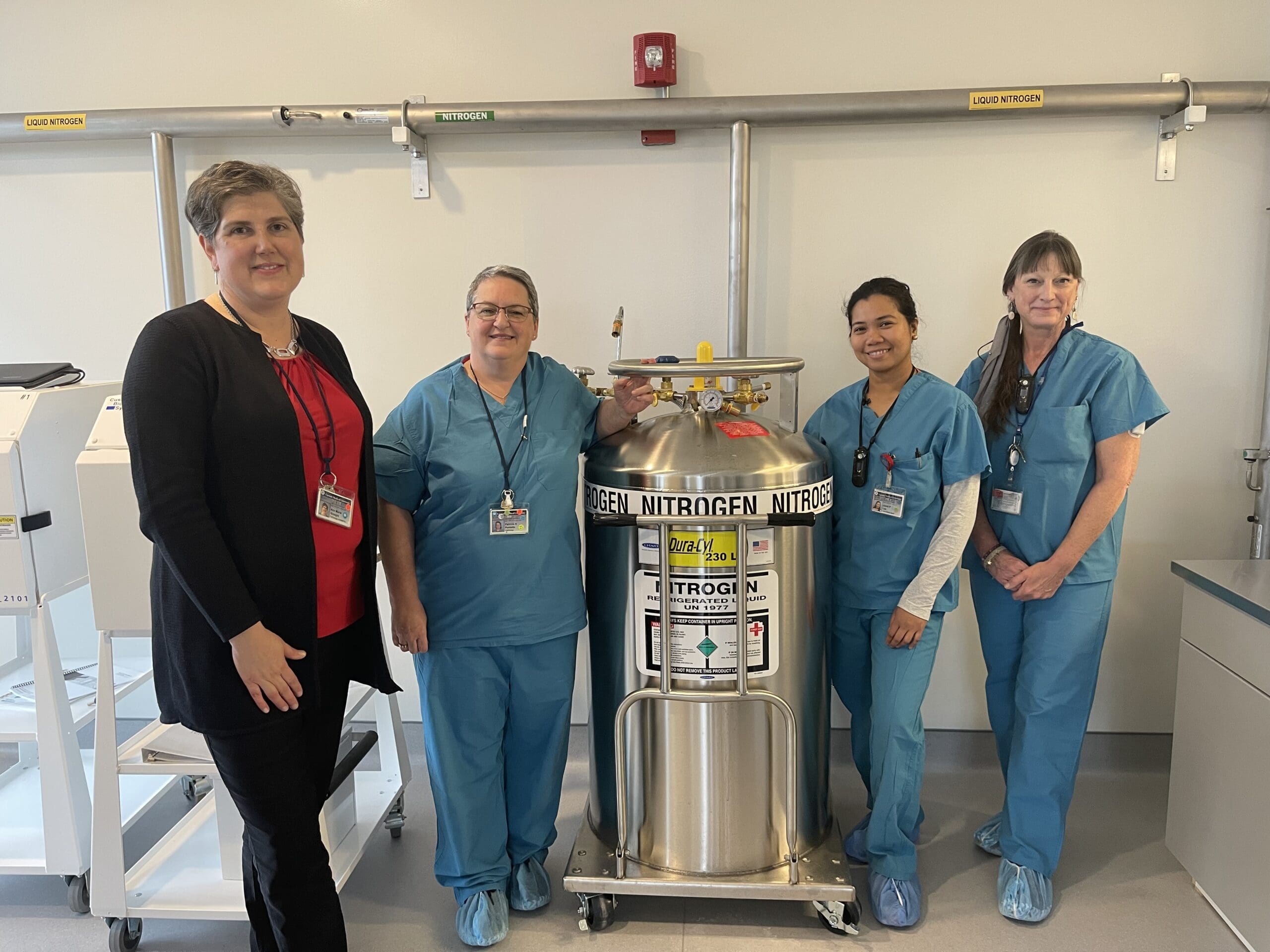The Upstate Cord Blood Bank, the region’s only not-for-profit public cord blood donation center, is dedicated to saving and improving lives through the life-saving gift of cord blood.
The term “cord blood” may sound daunting, but it’s actually quite simple. After a baby is born and the umbilical cord is cut, the blood remaining in the umbilical cord is called cord blood. Cord blood is abundant in Hematopoietic Stem Cells (HSCs), which are blood-forming stem cells, similar to those contained within bone marrow.
These stem cells can reconstitute an immune system, and have the ability to treat, repair, and/or replace damaged cells in the body. For those suffering from blood cancers such as leukemia and lymphoma, and as many as 80 other life-threatening diseases, a cord blood transplant might be the only hope of a cure.
“Umbilical cord blood is typically discarded as medical waste,” says Dr. Matthew Elkins, medical director of the Upstate Cord Blood Bank. “We encourage expectant mothers to donate so that lives may be potentially saved through this painless, five-minute process just moments after giving birth.
Cord blood donation is completely safe for mother and baby; labor and delivery is not affected and no blood is taken from the newborn; it is only removed from the umbilical cord after birth. The designation of Upstate Cord Blood Bank as a public blood bank is important in that there is no cost to donate and donated cord blood is available to anyone who needs it.
Once donated, the cord blood is stored in the bank and made available to transplant centers in the United States and throughout the world for patients in need. The cord blood units will be listed on national and international registries to be matched to patients who need them. Any units collected that are not suitable for transplantation may be made available to researchers, with parental approval, both at Upstate Medical University and around the country.
Deciding whether to donate cord blood is best done during the early months of pregnancy. Various forms are completed by the expectant parents and submitted directly to the cord blood bank. After delivery, the blood is removed from the umbilical cord and then packaged and transported to Upstate’s 20,000 square-foot facility that features a state of the art processing laboratory and cryogenic storage containers.
The Upstate Cord Blood Bank, opened in 2017, operates under strict guidelines and protocols, established by state and federal health organizations, including the state Health Department; Food and Drug Administration; AABB Center for Cellular Therapies; and the Foundation for the Accreditation of Cellular Therapy. The center partners with Crouse Health, St. Joseph’s Health and Upstate Community Birthing Center to collect cord blood immediately after a baby is born.
To learn more, visit upstatecordbloodbank.com.





